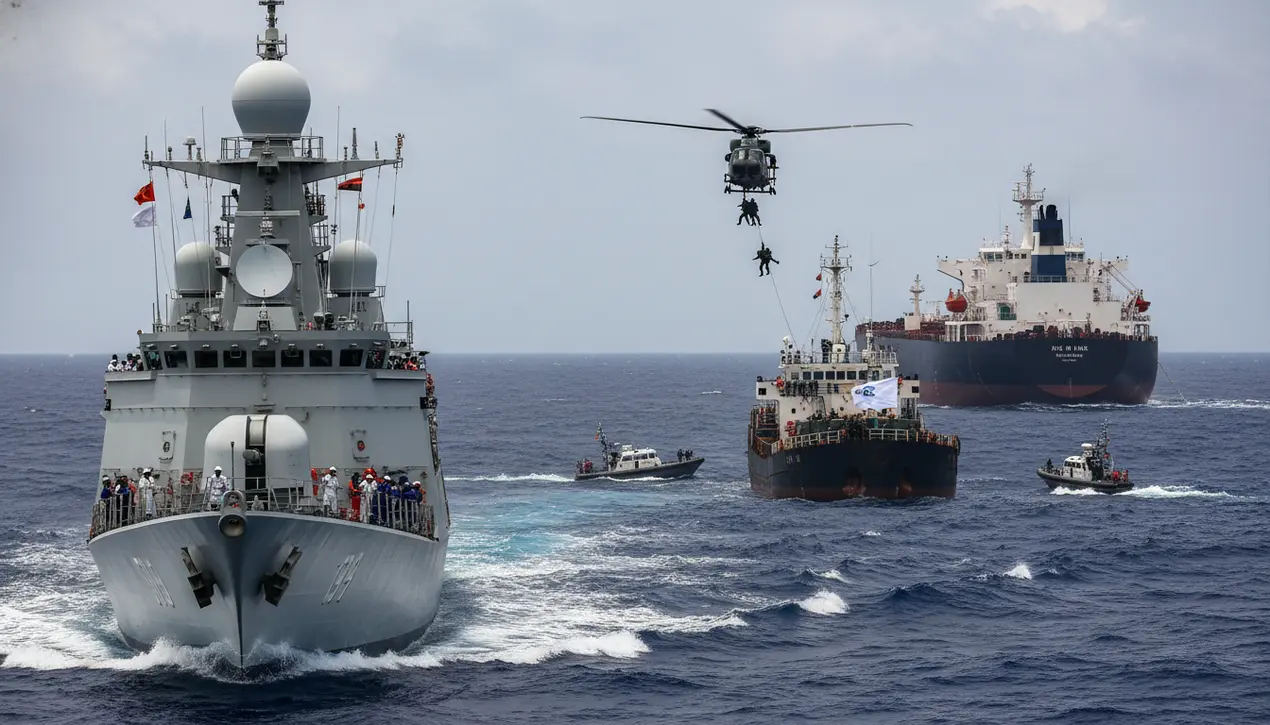
Politicsconflict & defenseMilitary Operations
EU and Indian Navies Seize Pirate Ship After Tanker Hijacking.
OL
Oliver Scott
2 hours ago7 min read2 comments
The recent seizure of a pirate ship by EU and Indian naval forces, following the brazen hijacking of a commercial tanker, is a stark reminder that the multi-billion dollar specter of Somali piracy, once thought relegated to history, retains a potent and disruptive capacity. This coordinated naval action, while a tactical success, unfolds against a complex and alarming backdrop of regional instability.The monitoring group Oceans Beyond Piracy quantified the staggering cost of this menace over a decade ago, pegging the global economic toll at a colossal €6 billion for 2011 alone, with €138 million flowing directly into the coffers of pirate gangs as ransoms. These figures were not abstract losses; they represented inflated insurance premiums, soaring security costs, rerouted shipping lanes adding weeks to voyage times, and the profound human trauma of held crews.The relative quiet of the past several years, secured through robust international patrols like those of EUNAVFOR Atalanta and hardened vessel self-protection measures, had fostered a dangerous complacency. Analysts now point to a perfect storm of contributing factors for this resurgence: the withdrawal of international focus towards other global flashpoints, political chaos within Somalia itself creating a governance vacuum, and the devastating impact of illegal fishing on local coastal economies that once drove young men toward piracy as a form of retaliatory 'taxation.' The strategic implications are profound. For global trade, the vital shipping arteries around the Horn of Africa are once again under threat, risking disruptions that would cascade through supply chains still recovering from pandemic-era shocks.For the European Union and regional powers like India, this event is a critical test of their sustained commitment to maritime security. The operation demonstrates successful intelligence-sharing and joint operational capability, a model that must be scaled and institutionalized.However, the purely military response is a reactive solution; the long-term, sustainable fix requires a dual-track approach. This involves bolstering the capacity of Somali authorities to enforce law and order on land, thereby dismantling the pirate networks at their source, while simultaneously addressing the root causes—poverty and resource deprivation—that make piracy an attractive enterprise.The hijacked tanker and its liberated crew are safe, but the underlying crisis is far from resolved. The international community must view this incident not as an isolated event, but as a critical early-warning indicator. Failure to mount a comprehensive, politically-backed response that goes beyond naval interdiction risks a full-blown return to the costly piracy epidemic of the early 2010s, forcing a recalibration of risk models for every shipping company traversing one of the world's most crucial maritime corridors.
#Somali piracy
#naval operation
#EU navy
#Indian navy
#hijacking
#maritime security
#featured
Stay Informed. Act Smarter.
Get weekly highlights, major headlines, and expert insights — then put your knowledge to work in our live prediction markets.
Comments
Loading comments...
© 2025 Outpoll Service LTD. All rights reserved.